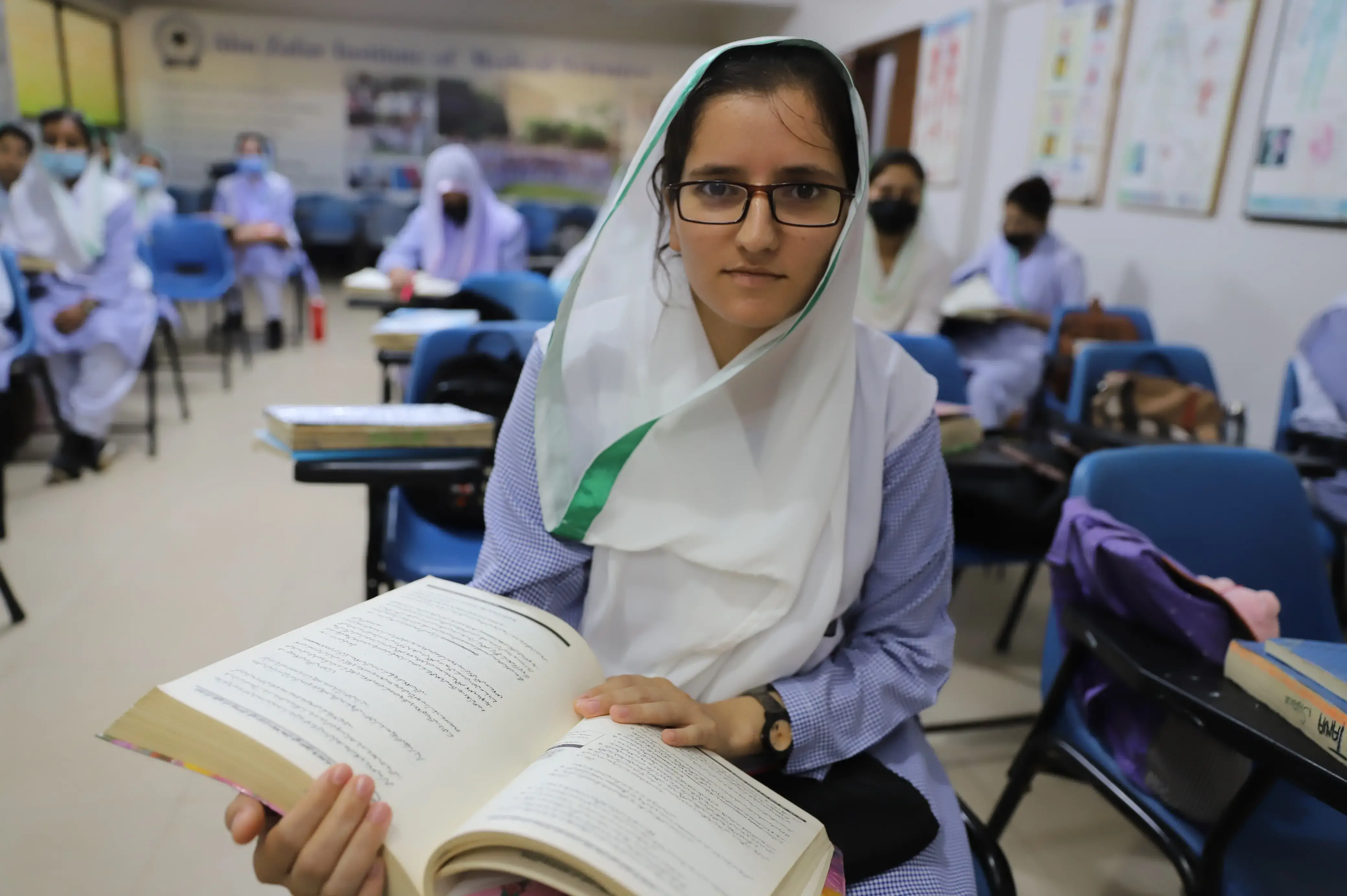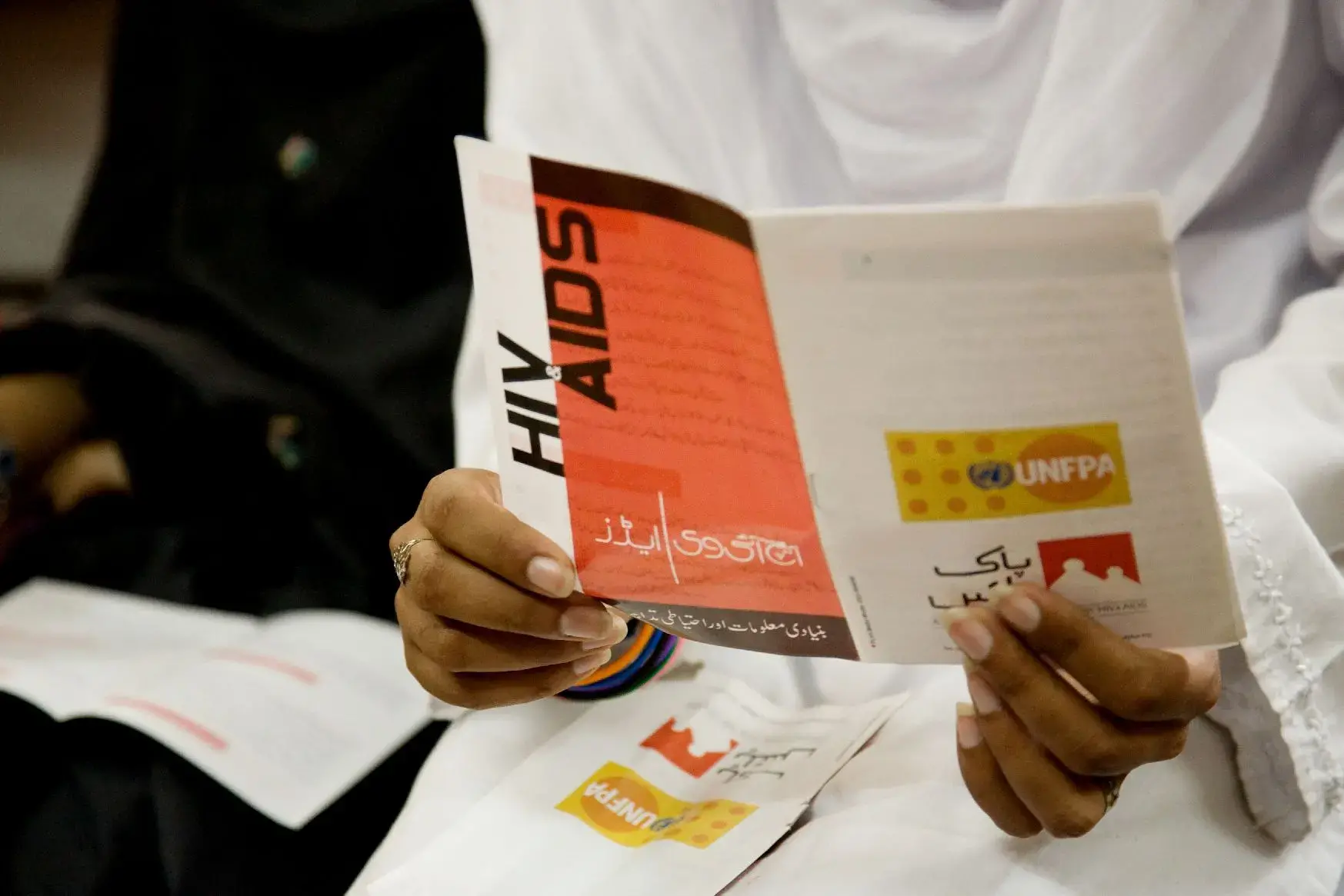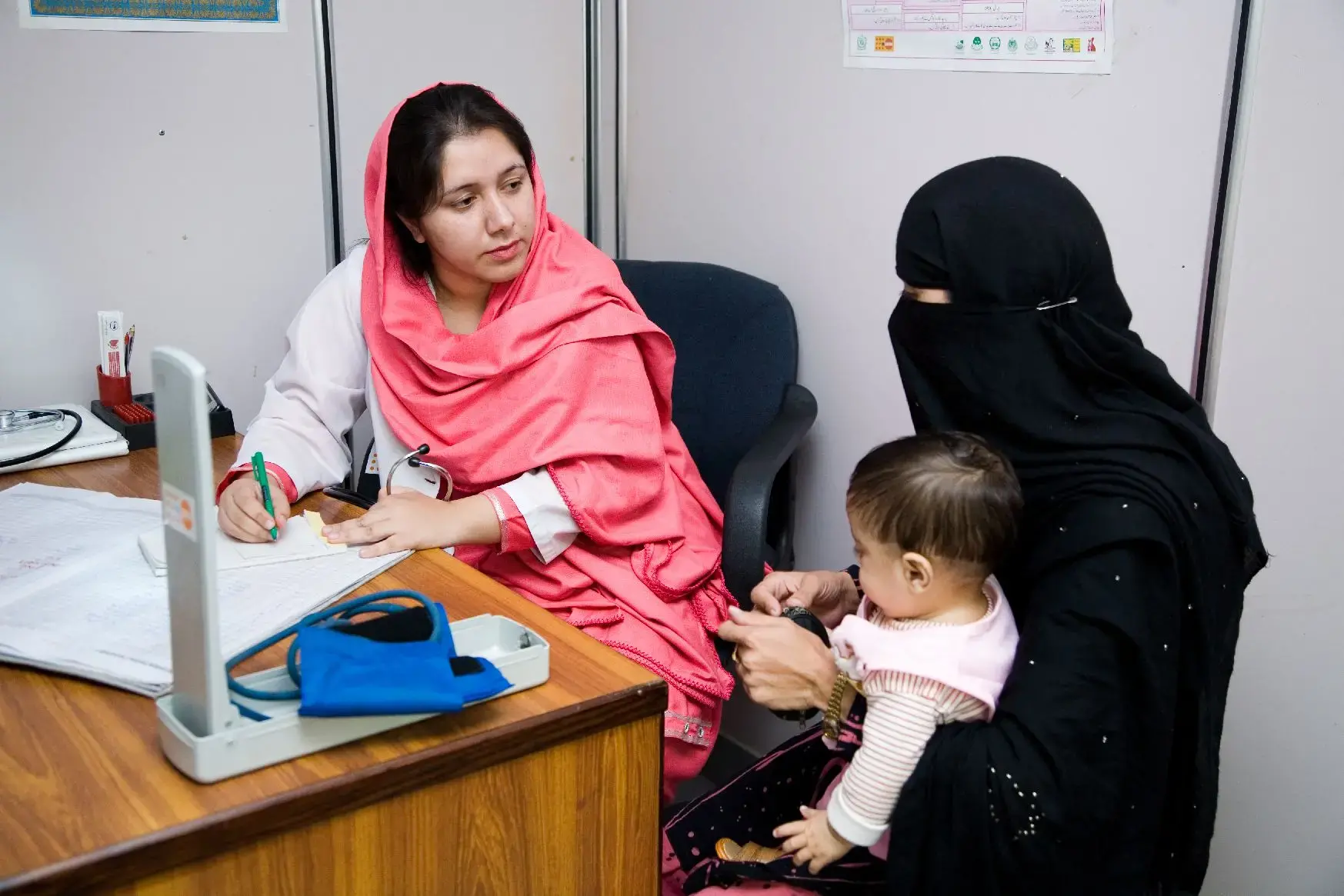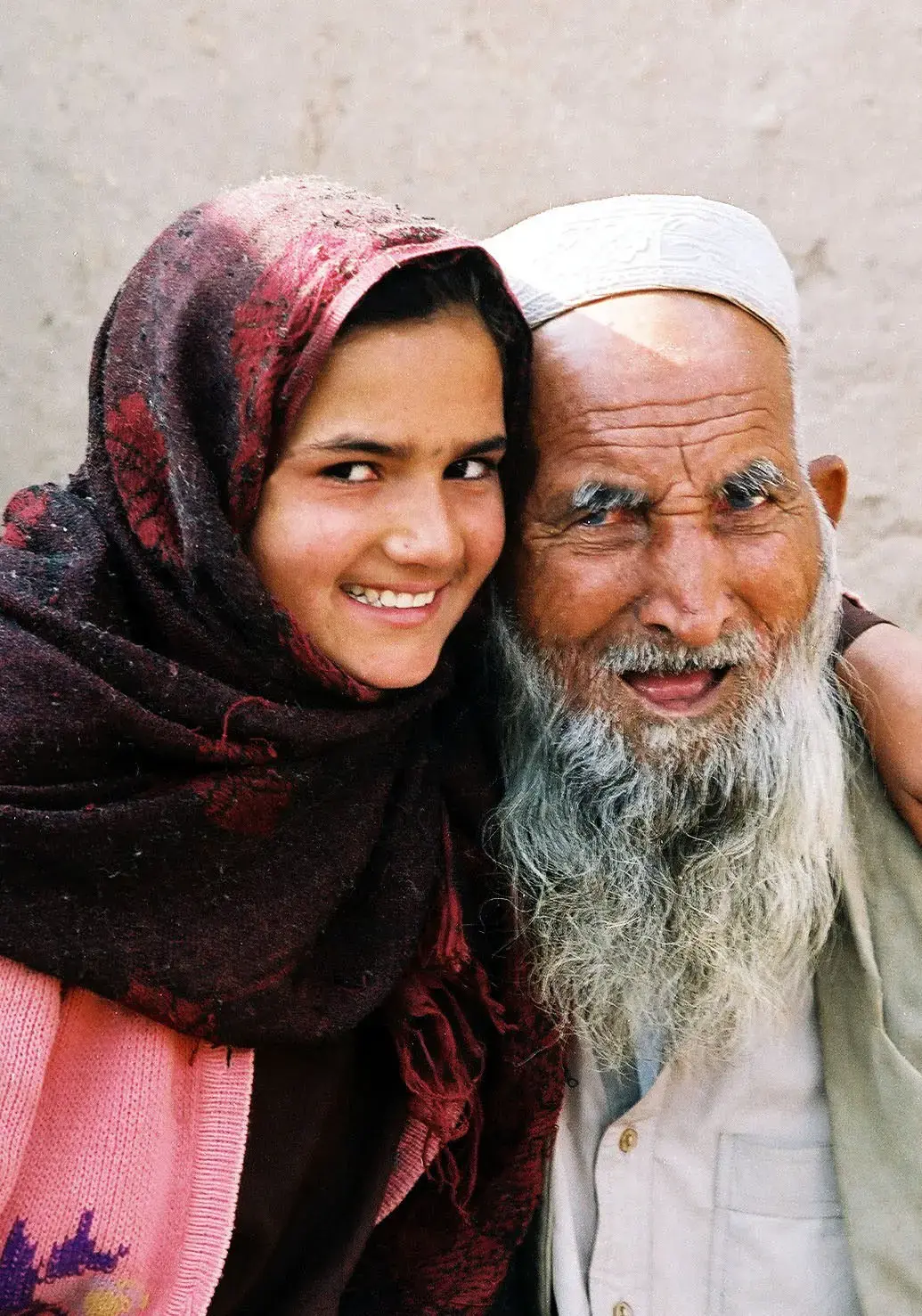Sexual and reproductive health is a fundamental human right, essential for improving long term health outcomes and reducing poverty. It encompasses our right to life, freedom, health, choice, privacy, education, and the prohibition of discrimination. A rights-based approach to SRH and family planning services ensures that individuals have the autonomy to make informed decisions about their reproductive health without facing coercion or barriers. By promoting access to comprehensive sexual and reproductive health services, we can improve maternal and child health, reduce unintended pregnancies, and support the well-being of families and communities.
Many women and young people in Pakistan face significant barriers that prevent them from exercising their sexual and reproductive health rights. Major gaps at both the service delivery and policy levels hinder access to basic health facilities. Delays in accessing timely care contribute to maternal deaths and other severe health consequences. Denying these rights exacerbates poverty and inequality, increasing vulnerability to gender-related ill health, unintended pregnancies, maternal mortality, harmful cultural practices, and sexual and gender-based violence. Addressing these barriers is crucial for improving health outcomes and advancing gender equality.
Advocating for universal access to sexual and reproductive health
UNFPA strives to ensure quality sexual and reproductive health information and services, including contraceptive services, violence against women and girls and sexual reproductive health needs of adolescents. Universal access to sexual reproductive health and women’s choice over their own reproductive choices is essential not only to achieve sustainable development but also to ensure empowerment for women. Furthermore, UNFPA has provided technical support to national and provincial governments to include family planning in Universal Health Coverage (UHC), ensuring comprehensive and equitable access to SRH services for all. UNFPA provides support to sub national governments for strengthening health facilities especially in the context of refugees and flood affected population.
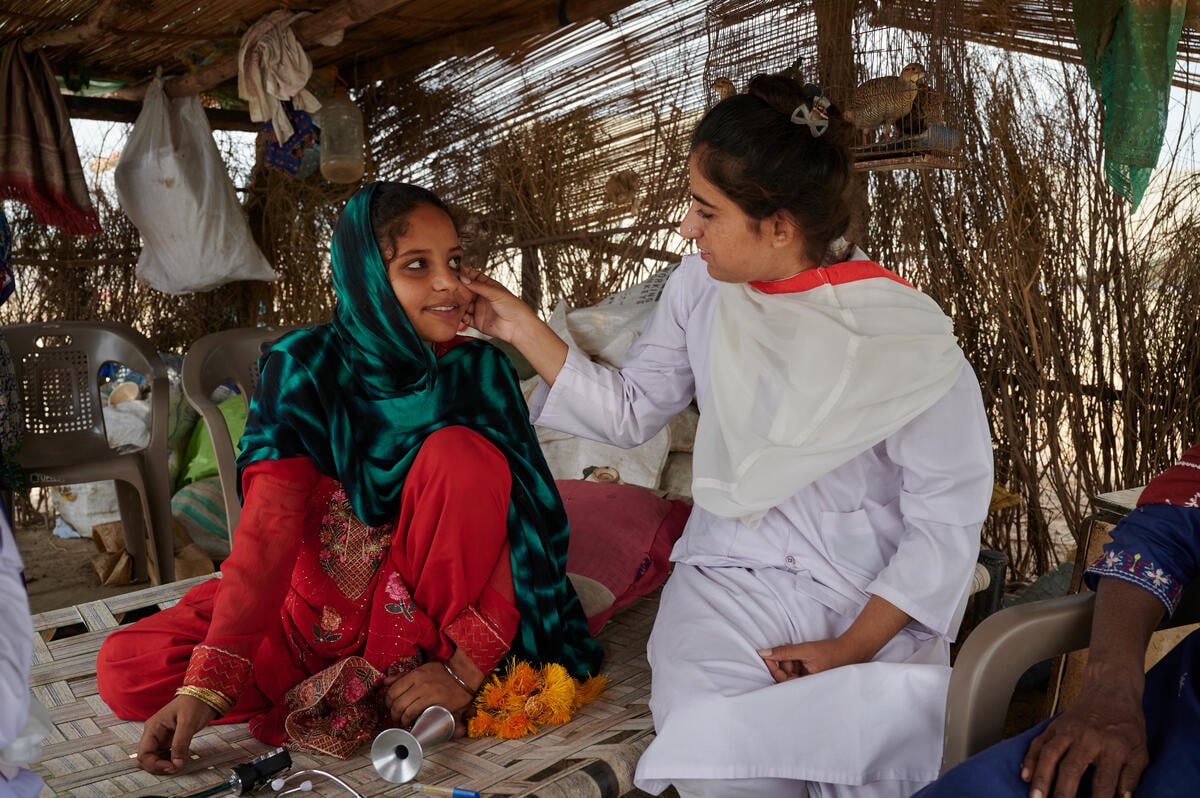
Building capacity of health-care workers and managers
UNFPA has continuously enhanced the capacity of health professionals at the local level, including nurses, midwives, and lady health visitors, to deliver quality sexual and reproductive health (SRH) information and services. To ensure sustainability, UNFPA has supported provincial governments in integrating SRH into existing healthcare training curricula, improving training plans, securing sustainable financing, and strengthening health provider capabilities. Additionally, UNFPA has focused on enhancing technical skills related to contraceptives and bolstering accountability mechanisms. UNFPA has continuously been building the capacity of managers on SRH data management and supply chain logistics, ensuring efficient and effective delivery of SRH services.
Making health services youth-friendly
Adolescents constitute 23% of the total population of Pakistan, young people frequently face barriers in accessing sexual and reproductive health information and services, which has cascading impacts on their lives and opportunities. UNFPA advocates for interventions that tailor sexual and reproductive health to the challenges people face at different stages of life, including adolescence. Meeting their unique needs has a profound effect on their health, well-being and opportunities later in life. This means providing access to life skills-based education and services to prevent, diagnose and treat STIs and unintended pregnancies.
UNFPA works with government ministries, civil society and young people to improve health services that are youth-friendly, including setting up adolescent counselling centres; developing service protocols; sensitizing communities and building the capacity of health facilities, civil society organizations and young peer educators. UNFPA has established Youth Friendly Spaces in collaboration with Government departments for imparting life skilled based education.
Midwifery & Maternal Health
The slow decline in mortality ratio indicates that the quality and coverage of the reproductive health services in Pakistan needs to expand to the underserved areas. UNFPA is working to strengthen the workforce through informed policies and regulations for the midwives and improvement of the status of Midwifery programme in Pakistan.
Midwives can deliver 90% of all sexual, reproductive, maternal, newborn and adolescent healthcare services (SRMNAH) if they are well educated and supported by a functional healthcare system. (State of the World’s Midwifery Report 2021).
UNFPA has supported the Ministry of Health in development of the first ever National Midwifery Strategic Framework, with World Health Organization & Midwifery Association of Pakistan (MAP) and Health Services Academy (HSA) which addresses the issues of governance and leadership, Nomenclature, scope of practice, structured career pathway and acceptability of midwives as distinct health professionals.
Investing in Midwifery Education aligned with ICM standards- UNFPA has supported in developing curriculum, upgrading the institutes and built the capacity of BS Midwifery Faculty with the Technical Support of UNFPA-APRO & Burnet Institute Australia to initiate direct entry 04 years BS Midwifery in two public sector institutes: HSA in Islamabad & Fatima Jinnah Medical University FJMU in Lahore.
Strengthening Midwifery Services- In-service training programs on updated Emergency Obstetric and Newborn Care (EmONC) clinical Protocol are being implemented for the midwives in all four provinces.
Under the new country programme, UNFPA specifically focus on revamping midwifery education, regulation and association as per the standards of the International Confederation of Midwives (ICM) along strengthening Midwifery practice is one of the major objectives of the UNFPA’s 10th Pakistan Country Programme from 2023-2027
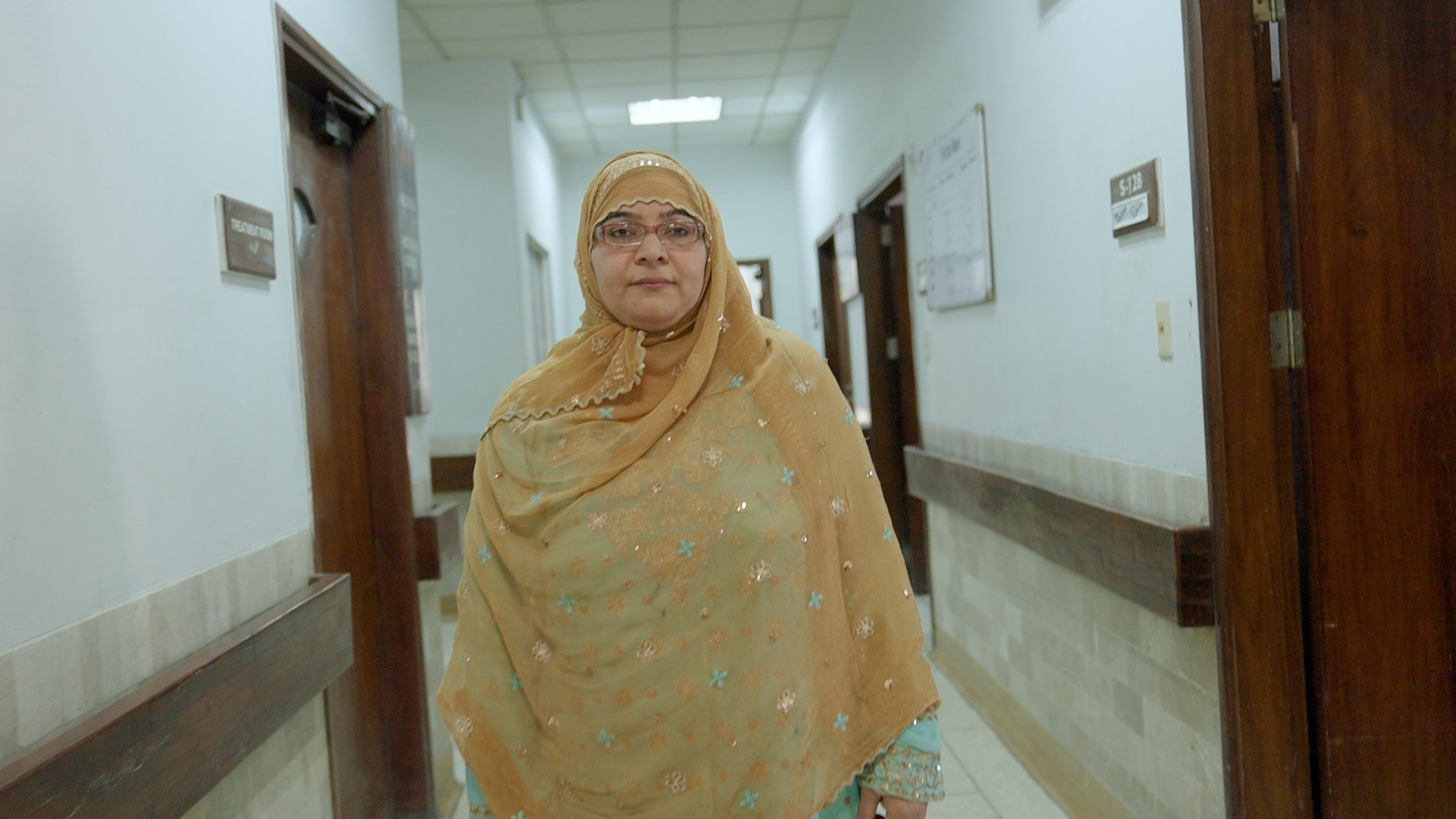
Obstetrics Fistula
UNFPA Pakistan is working on ending the Obstetric/Iatrogenic fistula campaign with its implementing partners including ministry/department of Health and Pakistan National Forum on Women’s Health. The components of the campaign include the prevention, treatment, and rehabilitation social integration in the communities. Iatrogenic Fistula has an increasing trend: To prevent that training sessions were organized on safe hysterectomy procedures/pelvis surgeries for the Gynaecologists/urologist.
Establishment of centre of excellence in Pakistan Institute of Medical Sciences (PIMS) a public sector hospital in Capital city Islamabad is initiated by providing the medical equipment and trainings. Pakistan National Forum on Women’s Health - PNFWH is technically supporting the PIMS hospital to be a centre not only for the treatment of the fistula patients but also for organizing and conducting the training of surgeons and Midwives in PIMS Hospital Islamabad. Kohi Goth hospital in Karachi was an existing centre of excellence for fistula prevention, treatment and rehabilitation.

